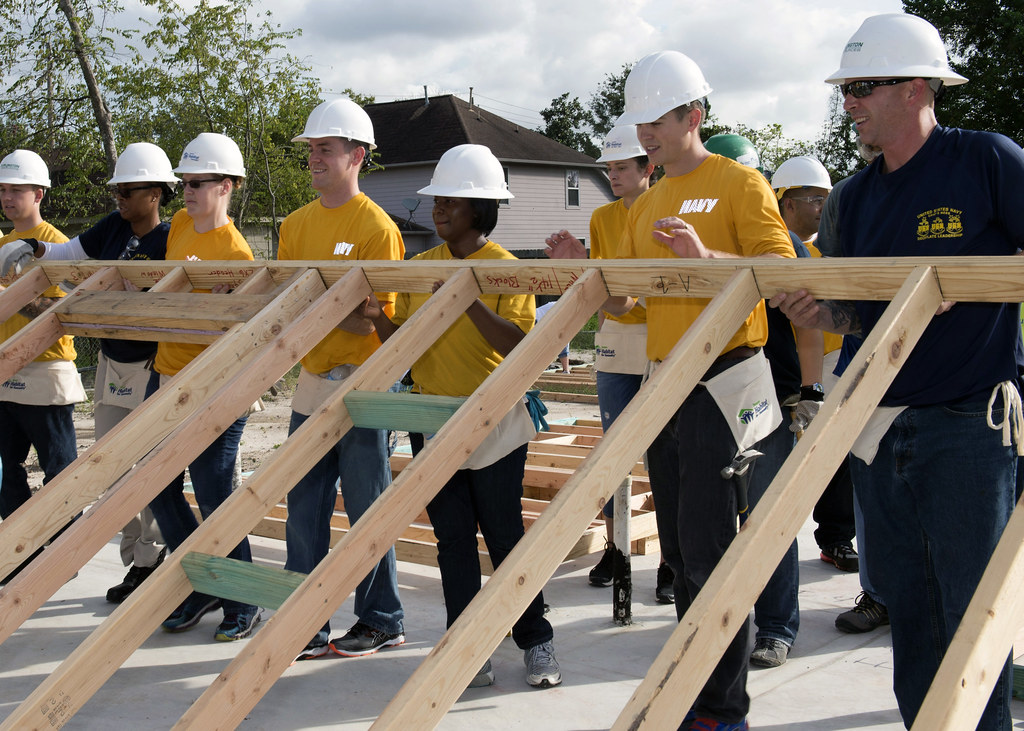Affordable housing was an issue even before COVID-19. Now we must decide what homes are for: sheltering people, or making a profit?
Other countries with more of a “team player” ethic may have crushed the virus already, but here in the United States, our rugged individualism guaranteed a longer and harder pandemic for the sake of “freedom.” That particularly American flavored freedom will soon take the form of a homelessness epidemic, as rent deferrals, eviction moratoriums, and extended unemployment benefits expire, but a COVID-wracked economy can’t create enough jobs (especially in a safe and healthy way) to keep everyone in their homes. Affordable housing has long been a problem here, but now is a particularly good time to consider options that may not have been on the table before. With the world changing around us, why not seize the opportunity to rebuild it in a fairer, more egalitarian way?
Perhaps the first question some readers might ask is, “Why do we have to do anything at all?”
Despite claims that the United States is a Christian country, socially conservative policymakers rely on ironic levels of social Darwinism to evolve a society more in keeping with their austere aesthetic. Fiscal conservatives, however, have much to gain from investments in affordable housing. In 2017, for example, a study in Los Angeles County, CA, found that for every dollar the county spent on housing assistance, it saved $1.20 in costs associated with managing the homeless population, such as providing social services and medical care. Keeping people in homes instead of on the street isn’t only the moral thing to do, it’s also financially responsible.
Thinking outside the typical 2000 square foot box would help a lot, too. Where allowed to do so, the market has provided affordable housing solutions for people with some (if not much) money to spend. When a real estate developer in Asheville, NC, opted to convert an old hotel into small, no-frills apartments, he got pushback from elected officials. “Who would possibly want to rent a 400 square foot apartment?” they asked. However, it turns out that many of them had done so at some point in their lives, whether they were poor college students, recently divorced, or lost their job and needed to cut expenses. Basing zoning decisions solely on the perspective of local politicians and business leaders is a surefire way to overlook workable solutions for people of average means.
The Coronavirus pandemic could, itself, unlock previously unconsidered ideas that lead to change. Hard-hit churches and other institutions with declining membership and income might consider the example of Arlington Presbyterian Church in Virginia. In 2016, the church was down to only 60 members, and could no longer afford to maintain its sanctuary. They sold the property to the nonprofit Arlington Partnership for Affordable Housing, which built a seven-story complex with 173 low-cost units in its place. Nowadays, the church leases space on the ground floor of the building, while also fulfilling their obligation to care for “the least of these.”

Neighborhoods may also be designed with affordable housing in mind from the get-go. Providing excellent public transportation allowed South Los Angeles to work with the nonprofit Restore Neighborhoods LA to develop the city’s first new bungalow court in 70 years. Doing away with requirements to provide parking mean that more housing can be built for people instead of cars. How much land could be recovered if cities allowed narrow lots, vacant commercial properties, surplus parking structures, suburban back yards, and other lost spaces to be repurposed or rebuilt as inexpensive housing units?
Finally, if we collectively decide that the most important use for housing is to shelter people instead of turn a profit (I know, unlikely, right?), Spain might provide a model for Americans hungry for change. Earlier this month, the city of Barcelona’s housing department put 14 corporate landlords on notice: if they don’t rent out their units in the next month, the City would take control of their empty apartment buildings (with 194 total units), compensating them at half the market value, and then rent them out as affordable housing for low-income tenants. Last December, it became legal for municipalities in the Catalonia region to force these purchases for properties that have been empty for over two years. If market forces and private charity can’t conjure up enough affordable housing to serve every American that needs a place to live, could we summon the political will to nationalize them into existence?
There’s a different world ahead, as old expectations fall away and new solutions arise. Priorities and needs are changing, as are the resources we have available to fill them. Let’s do better this time.
Related: Living In Your Car


Join the conversation!